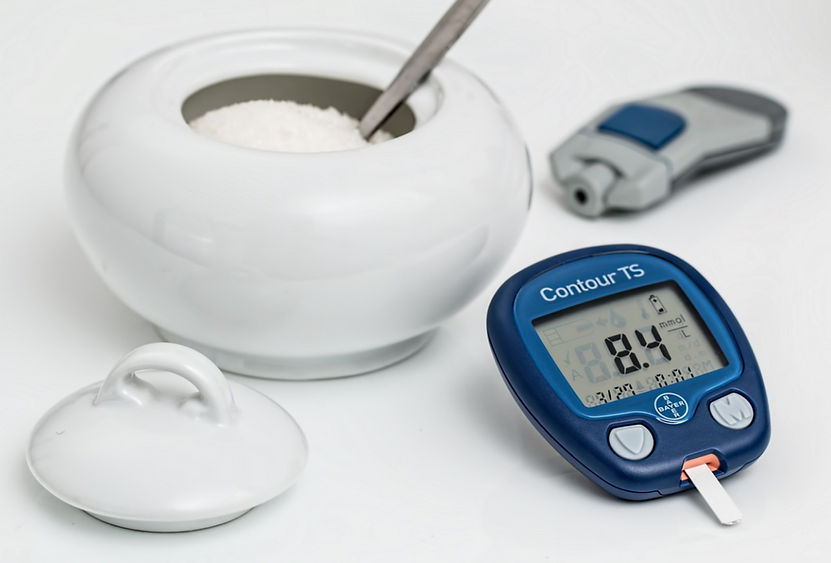
Pre-Diabetes
Pre-Diabetes
Pre-diabetes occurs when the body’s cells don’t respond effectively to insulin, leading to higher-than-normal blood glucose levels. Insulin is a hormone produced by the pancreas, and it helps glucose from food enter cells to be used as energy. In pre-diabetes, this process doesn’t work as it should, resulting in glucose buildup in the blood. If left unmanaged, pre-diabetes can progress to type 2 diabetes and increase the risk of cardiovascular diseases, nerve damage, and other health issues.
Common Risk Factors
-
Being Overweight or Obese
-
People over 45 are at higher risk
-
Sedentary Lifestyle
-
Family History
-
High Blood Pressure
-
High Cholesterol Levels
Identifying these risk factors early can prompt proactive steps toward prevention.

Physical Activity & Its Benefits
Regular physical activity is a cornerstone in managing pre-diabetes. Physical activity helps muscles use glucose more efficiently, reducing insulin resistance.
Engaging in at least 150 minutes of moderate aerobic activity per week, such as brisk walking, can improve heart health and support weight management. Incorporating strength training exercises at least twice a week further benefits glucose absorption by increasing muscle mass. Additionally, simple activities like short walks after meals can help regulate blood sugar levels, providing an easy yet effective way to support metabolic health.
Other Lifestyle Modifications
In addition to diet and exercise, managing stress, getting adequate sleep, and quitting smoking are essential lifestyle modifications for people with pre-diabetes. Chronic stress and sleep deprivation can increase blood glucose levels and contribute to insulin resistance. Practicing stress reduction techniques such as meditation, yoga, and deep breathing exercises can support blood sugar management and overall wellbeing.

the Importance of Weight Managment
Weight management is one of the most effective ways to reduce the risk of pre-diabetes. Studies have shown that even a 5-10% reduction in body weight can have a significant impact on improving insulin sensitivity and lowering blood glucose levels. Strategies for achieving and maintaining a healthy weight include:
-
Balanced Meals
-
Regular Physical Activity
-
Mindful Eating
Self-Care Strategies
To manage pre-diabetes effectively, start with realistic goals that lead to sustainable lifestyle changes. Simple steps, like adding one vegetable to each meal or going for a daily walk, can make the journey feel achievable. Building a support system is also essential; support from family, friends, or a healthcare team can provide motivation and accountability. Connecting with a support group or consulting a nutritionist can offer valuable guidance and encouragement, helping you stay on track and make informed choices for your health.



_edited.jpg)